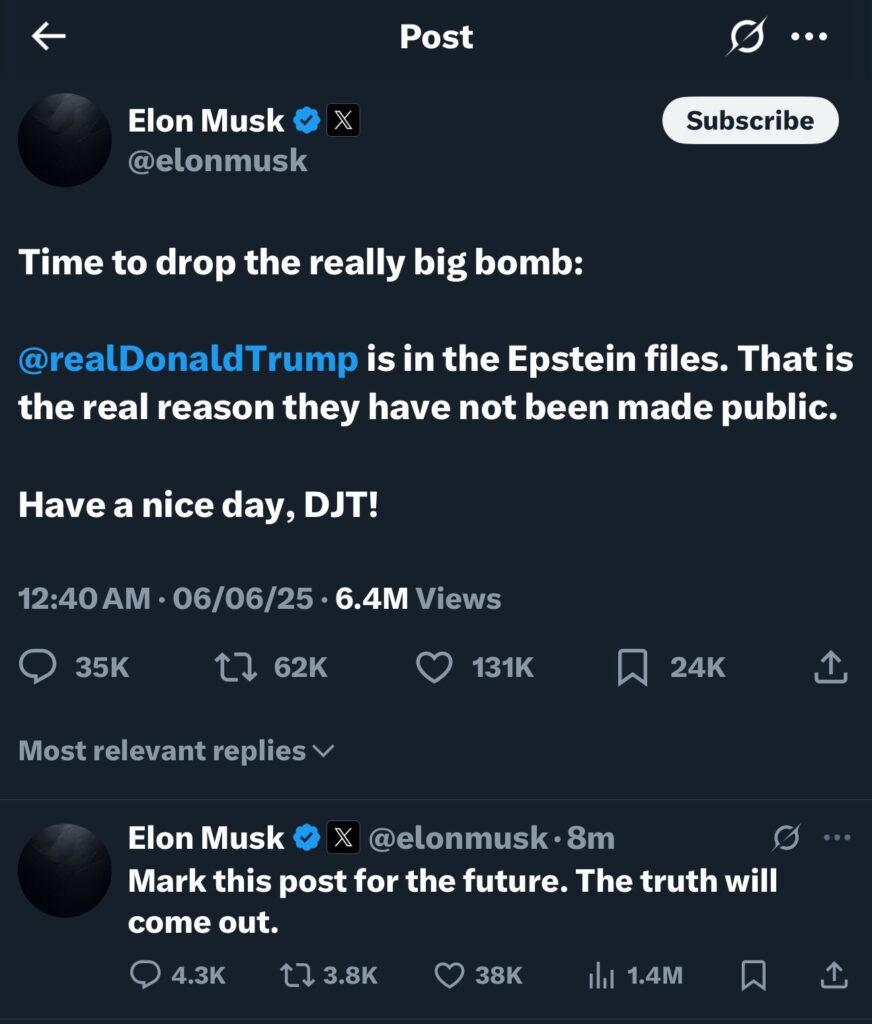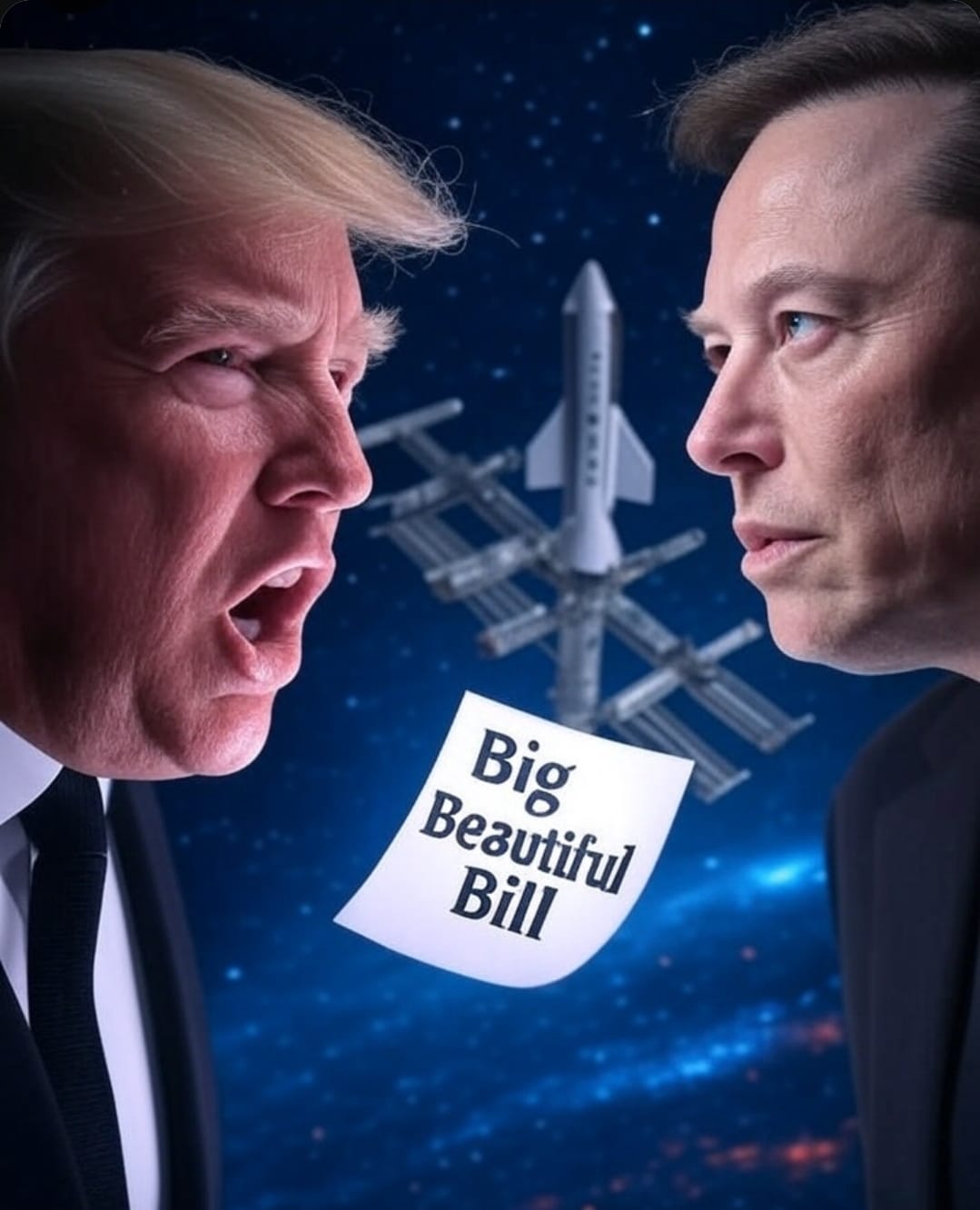June 7,2025
In a dramatic escalation that has gripped headlines, the public feud between President Donald Trump and Elon Musk, which erupted in June 2025, is sending shockwaves through the U.S. space industry. What began as a policy disagreement over Trump’s “Big Beautiful Bill”—a massive tax-cut and spending package—has spiraled into a high-stakes conflict with far-reaching implications for America’s space ambitions, national security, and commercial space ecosystem. With SpaceX, Musk’s flagship aerospace company, at the heart of U.S. space operations, this feud could disrupt everything from the International Space Station (ISS) to lunar missions and national defense. Here’s how the clash is reshaping the space industry and what it means for the future.
The Spark: A Policy Divide Turns Personal
The rift ignited over Trump’s signature legislative package, which Musk, fresh off a 130-day stint leading the Department of Government Efficiency (DOGE), slammed as a “disgusting abomination” for ballooning the federal deficit by an estimated $2.4 trillion over a decade. Musk, tasked with slashing government waste, saw the bill’s spending as a betrayal of his cost-cutting mission. Trump, however, hailed the legislation as a historic achievement, boasting $1.6 trillion in expense reductions and the largest tax cut in history.
The disagreement turned personal when Trump suggested Musk’s opposition stemmed from the bill’s elimination of Biden-era electric vehicle (EV) tax credits, a blow to Tesla’s bottom line. Musk denied this, focusing instead on the bill’s “mountain of disgusting pork.” The feud escalated on social media, with Musk hinting at unproven claims about Trump’s ties to Jeffrey Epstein and Trump threatening to cancel billions in government contracts with SpaceX and Starlink, accusing Musk of going “CRAZY” after being asked to leave his advisory role. The fallout was swift as Tesla’s stock plummeted 14.3% on June 5, 2025, wiping out $150 billion in market value.

SpaceX is the backbone of America’s space program, making this feud uniquely consequential. The company holds roughly $22 billion in contracts with NASA and the Pentagon, dominating U.S. rocket launches (95% in 2024) and serving as NASA’s sole provider for astronaut transport to the ISS via its Dragon spacecraft. Trump’s threat to terminate these contracts could cripple critical programs, while Musk’s initial vow to decommission Dragon—later softened—raised alarms about U.S. access to the ISS. With Boeing’s Starliner temporarily grounded, NASA would be forced to rely on Russia for ISS missions, a geopolitical and strategic setback.
The feud also threatens NASA’s Artemis program, which aims to return astronauts to the Moon, and SpaceX’s Starship, pivotal for lunar landings and Musk’s Mars ambitions. Competitors like Blue Origin and United Launch Alliance (ULA) lack the capacity to immediately fill the void, and the withdrawal of Jared Isaacman, a Musk ally, from NASA’s administrator nomination further muddies the agency’s leadership.

Beyond civilian spaceflight, SpaceX’s Pentagon contracts for launching national security satellites are vital to U.S. defense. Analysts warn that severing these contracts would disrupt surveillance and communication capabilities, as alternatives like ULA and Blue Origin aren’t yet scaled to meet demand. Proposals like the Golden Dome missile defense system, potentially involving SpaceX’s Starlink, could also face delays. The feud’s timing is particularly precarious, as global tensions underscore the need for robust space-based defense assets.
The public spat has shaken investor confidence, with Tesla’s stock plunge signaling broader market concerns. While SpaceX is privately held, uncertainty around its government contracts could deter investment in the commercial space sector. Legal battles loom if contracts are improperly canceled Musk’s 2014 lawsuit against the Air Force over launch contracts sets a precedent. Regulatory scrutiny, such as environmental concerns over Starship launches, could also intensify.
Ironically, the feud may open doors for competitors. Blue Origin’s New Glenn rocket and other commercial players could gain traction if SpaceX falters, especially as Trump’s budget favors commercial systems over NASA’s Space Launch System.
A White House official hinted at a scheduled call on June 6, though Trump dismissed it, and Musk’s softened stance on Dragon suggests a willingness to de-escalate. Yet, the underlying tensions competing egos, policy disputes, and Musk’s outsized influence, persist. His DOGE tenure, marked by clashes with Trump’s cabinet and controversial NASA budget cuts, exposed fault lines that may not easily mend.
The Trump-Musk feud is more than a clash of titans; it’s a stress test for the U.S. space industry. SpaceX’s dominance makes it both indispensable and vulnerable, while the government’s reliance on a single company highlights the risks of such dependency. As the U.S. pushes for lunar exploration, Mars missions, and space-based defense, the fallout from this feud could delay progress, embolden competitors, and reshape space policy. For now, the industry holds its breath, hoping two of America’s most powerful figures can find common ground before their cosmic clash grounds the nation’s space ambitions.



